Natural Perfume
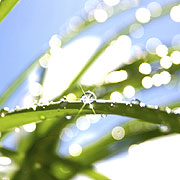
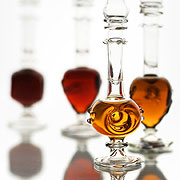
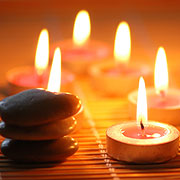

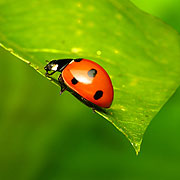
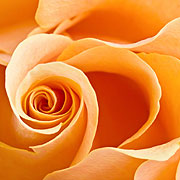
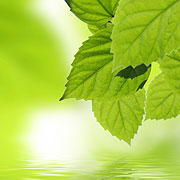
The history of perfume
Perfume is not a child of our days. Prehistoric men distinguished between sweet and sour, light and heavy or animal and human smells and connected them to certain situations and rituals. Since the beginning of mankind odours were targeted used to stimulate, to relax, to arouse or to kill. The old Egyptians burned smelly materials to soothe the gods 5,000 years ago. The same is reported about other peoples. Most likely, this is also the origin of the word „Perfume“. Per fumum is Latin and means „through the fume“. In ancient Rome, Phoenician and Babylonian aromatic essences where desired and expensive objects of bartering. With the rise of Christianity and the strengthening of the Catholic Church as an opinion leader, to perfume became more and more considered as a means of vicious carnality and nearly completely banned. At the same time, in the Near East the art of refining and conserving perfume was kept alive. Crusaders brought these essences back to Europe in the 11th. Century. Perfume's breakthrough in Europe was made possible by a quite unlikely helper: the plague. In their helplessness the doctors realised, that the disease was transmitted predominantly in public bathhouses. This was not brought into context with the fact that people had direct body contact in there, but with the water that all visitors used. The bathhouses were banned and bathing was forbidden generally. All body odours were now masked by large amounts of perfume. Starting in the 14th. Century, perfume was also produced in France and Italy. By the end of the 18th. Century Eu de Cologne, a strongly diluted perfume, reached the market. Up to this time, all available perfumes were all-natural products. It was not before 1837 until the Chemists Wöhler and Liebig discovered the first synthetic building block for perfume production, and thousands have followed until today.
The exciting world of perfumes
Scents appeal to our senses. A perfume outlines the own character, the individual style and of course adds a bit of extravagance. Perfume odours are composed of a head note, a heart note and a base note. To judge a perfume properly, one has to follow the rule: spray, wag, rub. The perfume is sprayed on the temple, the wrist or on a testing strip, then smelled on and judged. But what can be smelled then is mostly only the head note of the perfume. The perfume's head note is often the clincher for a purchase. Therefore, it is a light but intensive, volatile aroma which later slowly fades into the heart note. The heart note unfurls slower and only at the end finds it true character when it merges seamlessly into the base note. However, the busy buyer will realise this only after he has already left the shop. Therefore: spray, wag, rub. By wagging the wrist the transition of head note into heart note is accelerated, rubbing the wrist unfolds the heart note more quickly. The best advice still is not to be under pressure when buying a perfume. Let friends or your partner sample the chosen aroma on your hand. Perfumes change their aroma with every different skin. So it is possible that the one perfume that you really adore on your partner may turn out differently on your skin.
Natural perfume versus conventional perfume
Sure enough, the perfume industry analyses customer behaviour and adapts its range of products accordingly. A conventional perfume is build of single, chemically nearly pure aroma modules. Around 5,000 of these artificial aroma modules are juxtaposed to only a few hundred natural essences. By changing their combinations or adding new chemical aroma modules the perfume industry is able to create new aromas easily, which are then marketed using names of well-known celebrities and huge marketing budgets. Of course, the success of these campaigns is tremendous.
Contrary, the creation of a natural perfume takes a lot of time. The core substances are natural or even all-natural essential oils. Regardless of the plant they origin from, each all-natural essential oil (in other words one building block) consists of more then one hundred inseparable, natural fragrances. To compose a perfume from this large variety of aromas often takes months or even years. The aroma of a natural perfume vanishes a bit quicker than the one of its artificial opponent, but is mostly less intrusive.
Whatever type is used, after a while the aroma of the applied perfume is no longer perceived by the person who applied it, but still for others it is notably there. Therefore, a perfume should be changed once in a while. Lovers of natural perfume do have an advantage here, as the aroma of natural perfume can not be standardised. The aroma nuances of vegetable essential oils vary with every harvest depending on climate and soil condition.
Why natural perfume?
A simple question. Why do you eat fruits and vegetables instead of vitamin pills? Why do you prefer organic food instead of products from industrialised farming? One just wants to know what exactly is consumed by one's body on daily base. Manufacturers of natural perfume process plants whose virtues have been known since mankind's first records. And even if newly developed synthetic perfumes have been - sometimes cruelly - tested on animals for optimising before entering the market, possible long term effects will only be known in years. Natural perfumes use less than 20 aroma modules as a standard. A synthetic perfume in contrast may consist of more than 200 of these modules. Unfortunately, you will not find all of them stated on the label. The legislator has obligated the perfume manufacturer to only to state those components that can cause an allergic reaction. What else is mixed into the perfume stays the secret of the perfumer. Allergic reactions can be triggered by synthetic as well as by natural substances. Still it can be worth the while for an allergic person to check if he or she is only reacting to a synthetic aroma but could easily tolerate the natural counterpart.
What is in perfume and in natural perfume?
When this article mentions natural perfumes, then it refers to perfumes that are exclusively made from vegetable materials. The word „natural perfume“ is not protected or regulated by law. Therefore, it is possible that a perfume that claims to be „natural“ consists of vegetable and artificial aromas. The basic elements of a perfume are the aromatic essence, the carrier substance and Water. The aromatic essence can be an essential oil or a synthetically produced one. The word „essential oil“ does not tell anything about whether it is natural or artificial. „Ethereal“ comes from the Greek word „aither“ and just means volatile, therefore nearly every synthetic oil is an ethereal one. To make sure that only vegetable materials have been used the label „all-natural oil“ or „100% natural oil“ should be found on the flask. All-natural oil is produced using exclusively the respective source plant, while 100% natural oils are mixtures of all-natural oils. The labels „all-natural (naturrein)“ and „100% natural (100% natürlich)“ are protected by German law and are not allowed to contain any chemically synthetic aromas. „Selected natural aroma“, „contains natural products“ or „genuine aroma“ are imaginative word creation that lack any meaning, The known natural cosmetics and natural perfume manufacturers prefer essential oils coming from organic farming and or controlled collection in the wild.
The carrier substance of most perfumes is alcohol. As alcohol is subject to tax collection, it is made inedible. To do so, the alcohol is mixed with additives (like diethyl phthalate) which are widely suspected to harm liver and kidney. Sure enough, the manufacturers of natural perfumes also want to bypass any tax payment, but they use a more sophisticated and more expensive method to make the used alcohol inedible.
Extensive information about essential oilsWhat is the difference between perfume, eau de parfum and eau de toilette?
Perfume makers distinguish their products by their concentration of aromatic oils. „Eau“ stands for water and already indicates a thinned perfume.
| Perfume | 15 - 40% |
|---|---|
| Eau de parfum | 8 - 15% |
| Eau de Toilette | 4 - 8% |
| Eau de Cologne | 2 - 4% |
The extraction of essential oils is very sophisticated and therefore costly, which explains why perfume is the most expensive variant. But due to its high concentration of essential oils it can be used in smaller servings and its aroma persists longer on the skin. Eau de perfume, eau de toilette and eau de cologne are referred to as toilet water. The concentration of aromatic oils in toilet waters is below 15 percent. „Fragrance“ does not resemble an own classification.
Natural perfume for her
A perfume underlines individuality, exclusivity and personality of a lady. And because natural perfumes do have their price, they add a little luxury. For the warm spring and summer month especially the light, fruity and bloomy fragrances are suggested, while in autumn and winter the heavy oriental aromas of vanilla and exotic woods are the best choice. At work, more decent and unintrusive aromas should be preferred. Heavy and sweet aromas are best recognised in the evening.
Farfalla Natural Perfume
- Farfalla Do It Yourself Organic Perfume ( 27 ml)
- Farfalla Men Cedarwood Eau Fraîche ( 100 ml)
- Farfalla Natural Eau de Cologne Enchanted Forest ( 50 ml)
- Farfalla Natural Eau de Cologne Frangipani ( 50 ml)
- Farfalla Natural Eau de Cologne Mandarine ( 50 ml)
- Farfalla Natural Eau de Cologne Rose ( 50 ml)
- Farfalla Natural Eau de Parfum Alpine Blue ( 50 ml)
- Farfalla Natural Eau de Parfum Aura 1968 ( 50 ml)
- Farfalla Natural Eau de Parfum Collection Set ( 1 piece)
- Farfalla Natural Eau de Parfum Hippie Rose ( 50 ml)
- Farfalla Natural Eau de Parfum Nomad ( 50 ml)
- Farfalla Natural Eau de Parfum Vanilla Nuvola ( 50 ml)
- Farfalla Natural Eau de Parfum Woody Bergamot ( 50 ml)
- Farfalla Natural Terroir Perfume Richard Lüscher Britos 38°N 16°E ( 50 ml)
- Farfalla Natural Terroir Perfume Richard Lüscher Britos 46°N 08°E ( 50 ml)
Natural perfume for him
Approximately 30% of women prefer unperfumed men. But more than 80% think of perfumed men as being more well-groomed. Smells are important for women to build up closeness. Men should therefore choose fragrances that resemble themselves. Men prefer products with a low concentration of perfume like eau de cologne or after shave. The choice is dominated by woody or full-flavoured aromas and by aquatic accents. Also aromatic and fruity aromas like grapefruit, lemon on mint are asked for.